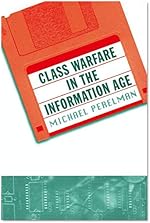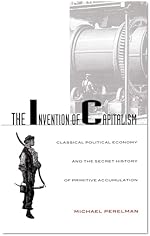A Courageous “Blogger”
I don’t really have a good foundation in this technology. I realize that it doesn’t take much to sit at a keyboard and make grant pronouncements about the way the world should be.
Today I read in the New York Times about the “blogger” using centuries-old technology in a way that puts the modern media to shame.
The article describes Alfred Sirleaf, the 33-year-old managing editor of The Daily Talk, a white plywood shed trumpeting the latest headlines along Tubman Boulevard, one of the capital’s main thoroughfares.
He writes his stories very carefully on large blackboards and even makes accommodations to help communicate the material to illiterates. He had to struggle to get a high school education. He has been arrested. And yet he continues to persevere.
And most of all the displays a spirit that puts the the corporate media to shame.
http://www.nytimes.com/2006/08/04/world/africa/04liberia.html?ref=world&pagewanted=print
August 4, 2006
Monrovia Journal
All the News That Fits: Liberia’s Blackboard Headlines
By LYDIA POLGREEN
MONROVIA, Liberia — In a country where wheelbarrows fill in for pickup trucks, water is carried on little girls’ heads instead of in pipes and gallon-size jars replace gas pumps, it is perhaps no wonder that a battered blackboard serves as newspaper and newsreel all in one.
The man behind what is surely the most widely read report here in the capital is a self-taught newshound with little more than a high school education and a nose for a good scoop.
He is Alfred Sirleaf, the 33-year-old managing editor of The Daily Talk, a white plywood shed trumpeting the latest headlines along Tubman Boulevard, one of the capital’s main thoroughfares.
“Those who don’t have opportunity to buy newspaper, go on the Internet, who can’t afford to buy generator to buy TV,” he said, describing just about everyone in this battered city, “I do all the dirty work for them, and I just give them exactly what they want.”
Mr. Sirleaf is something of an information evangelist, fervent in his belief that a well-informed citizenry is the key to the rebirth of his homeland, ravaged by 14 years of civil war. As the nation slowly comes back from the brink of annihilation, he said, he wants to make sure every Liberian can keep up with the news and play a part in the country’s young democratic government.
For those who can read, Mr. Sirleaf writes up his succinct reports on the panels of his blackboard in a meticulous hand. “I try to write it really clear and simple so people can read it far away, even if they are driving by,” he explained.
On July 25, the day before Liberia’s Independence Day, he wrote in bold letters above the day’s story: “CAMPAIGN TRUST BETRAY?” The story dealt with the promise made by Liberia’s new president, Ellen Johnson Sirleaf, perhaps a distant relative of his, to provide electrical power to at least part of the city by Independence Day and to restore at least part of the water system that was destroyed in the war. Monrovia has not had electricity, aside from that supplied by private generators, for more than 14 years.
For those who cannot read, Mr. Sirleaf has devised an ingenious system of symbols that transmit and sometimes subtly editorialize on the news. With the electricity story, hanging from the eaves of the newsstand on one corner was a kerosene lamp, next to an unlighted fluorescent bulb; on the other corner, there was a bag of drinking water, the kind young children sell to passers-by on the streets.
He said he used symbols to inform Liberians who never learned to read “so they will be able to follow along with those who have education know-how.”
To accomplish that, his display included a scoreboard showing a draw between the kerosene “jackolanterns” that most Liberians used during the war and electric lights.
“Will she live up to the promises she made?” Mr. Sirleaf said. “That’s what we are going to find out.’’ (In fact, the president built a small emergency power system that in part fulfilled her promise.)
Every morning Mr. Sirleaf buys half a dozen newspapers and scours them for the most important developments. If they involve the United Nations peacekeeping force, for example, Mr. Sirleaf hangs up a blue helmet, the ubiquitous headgear for those forces everywhere. A chrome hubcap is the symbol for the president, who is called the “iron lady” of Liberian politics.
Inside his tiny newsroom he composes the day’s headlines on his blackboard, a meticulous process that can take a couple of hours. He carefully draws lines on the board with light-colored chalk to ensure that the words are written in a straight line. He uses a musty, tattered dictionary to check his spelling. In place of photographs he uses old campaign posters and other free handouts.
He sprinkles his reports with bits of Liberian slang. He wants to entice readers put off by the flowery prose in local newspapers directed toward the country’s elite, the descendants of American slaves who settled here in 1822 and dominated the country’s politics for more than a century.
“I like to write the way people talk so they can understand it well,” he said as he carefully wrote out the day’s headlines one morning. “You got to reach the common man.”
Sometimes he adds an editorial — a thundering denunciation of corruption, or a plea for Liberians to be kinder to one another. When the president called for a day of national repentance before the Independence Day celebration, Mr. Sirleaf wrote, “Say sorry for your evil deeds to someone that you hurt yesterday for peace sake.”
When a big story breaks, he has a painted “Breaking News” sign that he hangs like a shingle in front of his blackboard. The last time he used it was when Charles Taylor, a former president and warlord who started Liberia’s civil war, was arrested and turned over to a special court in Sierra Leone to be tried on war crimes charges.
He keeps on top of developments through a network of correspondents — friends who volunteer to be his eyes and ears — who send him reports via text messages to his cellphone. The shoestring operation brings him no income.
“I just manage along with whatever money I can find,” he said. Occasional gifts of cash and pre-paid cellphone cards keep him in business.
In a country divided into educated people, or “bookmen” in the local patois, and the illiterate masses, many of whom missed years of education because of the war, Mr. Sirleaf’s own life story illustrates the difficult journey to learning.
He learned to read and write in an American-run mission school in the countryside, but in 1990, war disrupted his tranquil life of books and prayer. The missionaries packed up for the United States, and he went home to Monrovia. There was no money for school, and he ached from idleness.
“I felt so sick sitting at home doing nothing,” he said. Eventually he managed to scrape together money from odd jobs to go back to school, and in 2000, at 27, he finally got his high school diploma.
Despite his lack of formal journalism training, he came to have considerable influence. Mr. Taylor’s government was so irked by his critical reports that it arrested and jailed him briefly and tore down his newsstand. He went into exile for a time.
These days he has no trouble with the authorities. But he remains vigilant, eager to keep Liberia on the path of peace.
“Daily Talk’s objective is that everybody should absorb the news,’’ he said. “Because when a few people out there make decisions on behalf of the masses that do not go down with them, we are all going to be victims.”

 25 – The Confiscation of American Prosperity: From Right-Wing Extremism and Economic Ideology to the Next Great Depression
25 – The Confiscation of American Prosperity: From Right-Wing Extremism and Economic Ideology to the Next Great Depression 30 – Manufacturing Discontent: The Trap of Individualism in Corporate Society
30 – Manufacturing Discontent: The Trap of Individualism in Corporate Society Class Warfare in the Information Age
Class Warfare in the Information Age Railroading Economics: The Creation of the Free Market Mythology
Railroading Economics: The Creation of the Free Market Mythology Steal This Idea: Intellectual Property Rights and the Corporate Confiscation of Creativity
Steal This Idea: Intellectual Property Rights and the Corporate Confiscation of Creativity The Invention of Capitalism: Classical Political Economy and the Secret History of Primitive Accumulation
The Invention of Capitalism: Classical Political Economy and the Secret History of Primitive Accumulation The Perverse Economy: The Impact of Markets on People and the Environment
The Perverse Economy: The Impact of Markets on People and the Environment
Leave a comment